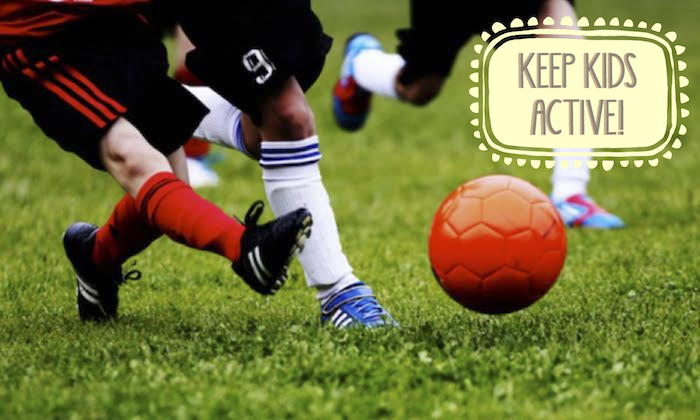

Get your kids moving with our expert tips on why right here…
Living in Hong Kong, one has to adapt to a fast-paced frenetic lifestyle. This applies both to adults and children alike. The academic pressures that children face here are legendary. The competition to enter the best schools have resulted in a booming industry of after school tutorial businesses and learning centres. A typical child will attend a full day of classes, followed by remedial lessons, then dinner, a few hours of home work, then bed. Next day, rinse and repeat. Physical activity has taken a back seat to academic prowess, and it’s resulting in a generation of inactive children. Any free time is spent on mobile phones, tablets or television.
There are studies that show that a sedentary lifestyle can be as harmful as smoking. Dr. James Levine, inventor of the Treadmill Desk and director of the Mayo Clinic Arizona State University Obesity Solutions Initiative has been studying the harmful effects of sedentary living for years. He states that “Sitting is more dangerous than smoking, kills more people than HIV and is more treacherous than parachuting. We are sitting ourselves to death.” He is not alone in his thinking. There are many studies that show that prolonged sitting increases the risk of various serious illnesses such as heart disease, certain cancers and type II diabetes. It is imperative that children stay physically active. One of the best ways of achieving this is through sports. There are several reasons why playing sports is beneficial to a child’s life.
Sports Improve Overall Health
Staying physically active helps to improve the child’s overall fitness and maintain a healthy body weight. Sports promote increases in muscle flexibility, mass, endurance and strength. Muscle is the body’s most effective fat burner and helps to defend against childhood obesity. Metabolism or the body’s efficiency at burning unwanted calories improves with sports. Weight-bearing exercises help stimulate the body to produce more bone, protecting against osteoporosis later on in life. There are studies demonstrating kids that play sports at a young age are less likely to smoke and have a lower incidence of certain forms of cancer. Active children also tend not to suffer from fatigue.
Key Motor Skill Development
Sports helps to develop hand-eye coordination in addition to many fine motor skills. Children learn a lot about the physical capabilities of their bodies through sports. Different sports require different muscle activation patterns and firing sequences. For example, martial arts helps to develop the fast-twitch muscle fibers required for explosive type movements. Gymnastics helps to train balance and proprioception (the awareness of your body position in space). Swimming and long distance running train the slow twitch muscle fibers needed for endurance activities.
Playing Sports Improves Academic Performance
“My child isn’t going to be a professional athlete when they grow up so why should they play sports?” I’ve heard this statement from numerous parents in the past. Hong Kong parents are often concerned that sports will take away time from studying, resulting in poorer grades. In fact the opposite is true. Regular exercise improves blood and oxygen flow to the developing brain. This contributes to improved memory and focus which is an enormous advantage in a classroom setting. Children that regularly play sports tend to have higher academic grades than those who don’t.


Organised Sports Teaches Life Skills and Values
Sports is a great way for children to develop skills and values that pay huge dividends for them throughout their lives. Cooperation with fellow teammates to achieve a united goal can easily translate to future work environments. Regular practices with coaches teach the value of preparation, hard word and persistence to achieve improved results. Performing and thriving during the pressure of intense competition teaches discipline, focus and leadership, all qualities that future employers look for. Lessons of good sportsmanship and fair play in both victory and defeat are vital experiences that can shape individual personal growth.
Boosting of Self-Confidence and Imagination
The camaraderie that sports brings can often last a lifetime. Playing on sports teams allows kids to make new friends and form social relationships outside of the classroom. Hearing the cheers from the audience and celebrating with fellow teammates is a bonding opportunity that is invaluable. All these experiences result in boosting self-confidence and self-worth. Devising and executing specific game strategies helps foster creativity and imagination. These are again universal attributes that will help kids in all facets of their future lives.
Improving Family Relationships
Playing sports allows parents to spent more quality time with their children. This is especially important here in Hong Kong where free time is so limited. Instead of simply putting them in front of a television or computer, teaching them to throw a baseball or hit a golf ball engages parents more into their child’s life. Parents can practice with their kids and make it a family routine or outing. Helping your child improve is immensely rewarding and a source of pride. Kicking the soccer ball around or playing a game of tennis is a great way to de-stress and enjoy each other’s company. Just don’t be too upset when your child starts thrashing you on the court!
Decreasing Stress and Simply Because It’s Fun!
Participating in sports allows children to take a break away from the monotony of sitting at a desk. Endorphins, which are the body’s natural “feel good” chemicals are released from the brain during physical activity. They promote a sense of euphoria and stress inhibition. These are the same chemicals that give rise to the “runner’s high” that avid joggers experience. Children that play sports regularly also report improved sleep quality and energy levels.
Lastly, the obvious reason that children should play sports is quite simply because it’s fun! Childhood is such a wonderful time and children should be able to run, play, and enjoy life free from stress and responsibility. All work and no play would make anyone (not only Jack) a sad boy.
 View All
View All











 View All
View All





 View All
View All


 View All
View All













